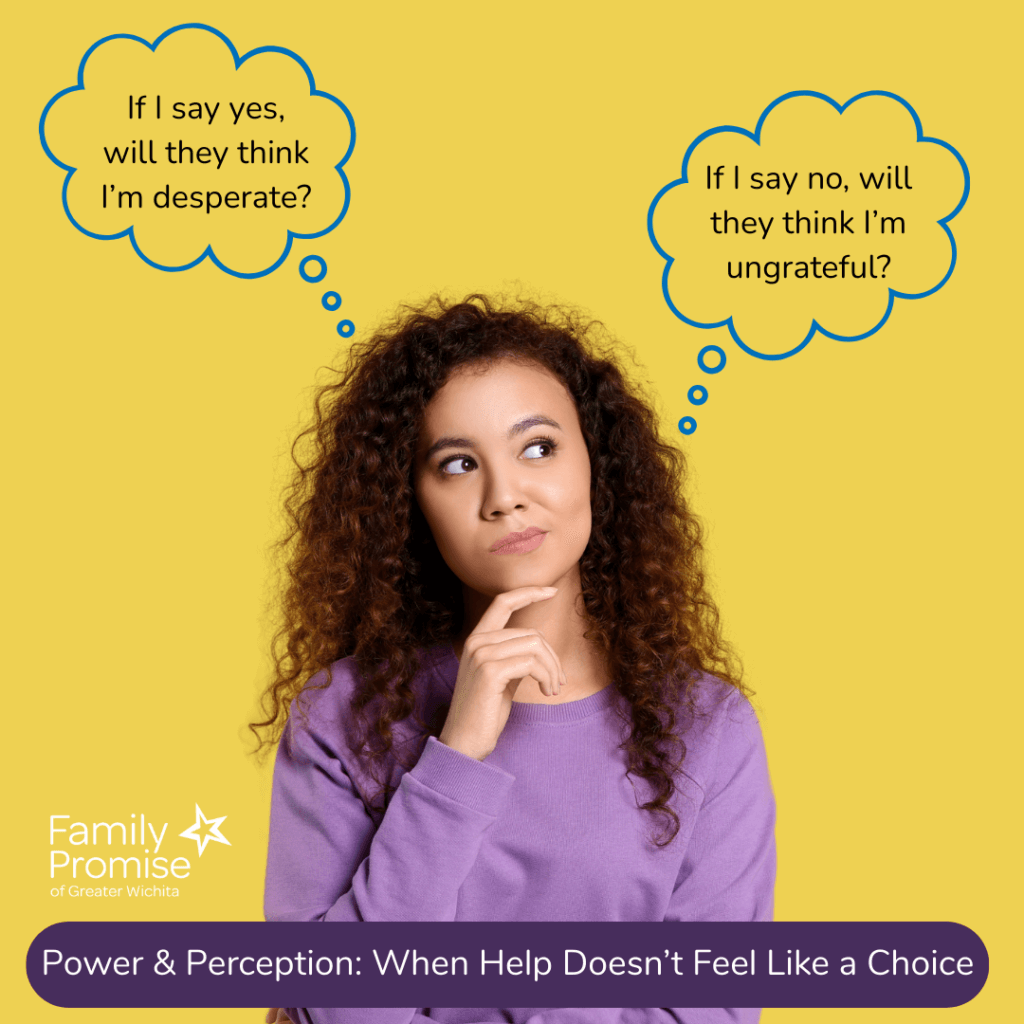Power & Perception: When “Help” Doesn’t Feel Like a Choice
At Family Promise, we believe that how we serve matters just as much as what we do. True empowerment happens when families can make choices without fear—when they know their voices matter and their dignity is honored.
But power dynamics exist in every service setting, even in small, everyday interactions. One example?
“Would You Like Extra Food?”
Imagine a parent in shelter. A volunteer, wanting to be generous, offers them extra food.
It seems like a simple question, but in that moment, the parent may be thinking:
- If I say yes, will they see me as desperate?
- If I say no, will they think I’m ungrateful?
- Do they expect me to take it? Will it be awkward if I don’t?
Even with the best intentions, this small interaction might make a parent feel self-conscious about their response. When someone is in a vulnerable position, they may not feel like they can make a true choice—they might feel like they need to act in a way that keeps people happy, just in case.

Why This Matters
Families experiencing homelessness are strong, resourceful, and capable—but they are also navigating complex challenges. They rely on programs like ours to meet their basic needs, and because of that, they may feel like they have to be extra careful in how they interact with staff, volunteers, or donors.
At Family Promise, we are intentional about how we show up in these moments. Our core values—dignity, relationship, empowerment, integrity, and versatility—guide us in making sure families feel respected, not obligated. That means:
✅ Giving help with no strings attached. Families should never feel pressure to accept—or decline—support based on how they think they’ll be perceived.
✅ Creating a space for true choice. When we offer something, we do it in a way that lets families feel confident in saying yes, no, or not right now.
✅ Being mindful of how we engage. A simple shift in language—like saying “There’s extra food available if you’d like any” instead of “Would you like extra food?”—can reduce the pressure someone feels to respond a certain way.
What This Means for You
As a volunteer, donor, or supporter, you play a role in making sure our community is one where families feel respected, not just helped.
- When offering help, ask yourself: Am I making this feel like a true choice?
- Be mindful that families may feel pressure to say what they think you want to hear. Give space for honest responses.
- Recognize that dignity matters as much as generosity. How we offer support shapes how families experience it.
At Family Promise, we want every family to know that their choices are their own—not something influenced by obligation or fear of judgment. Because when families feel empowered to make real choices, they don’t just survive—they thrive.
Thank you for being part of a mission that honors dignity in action.


